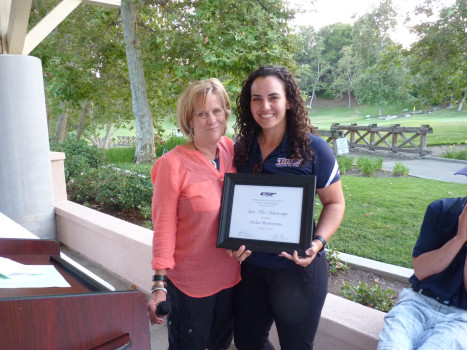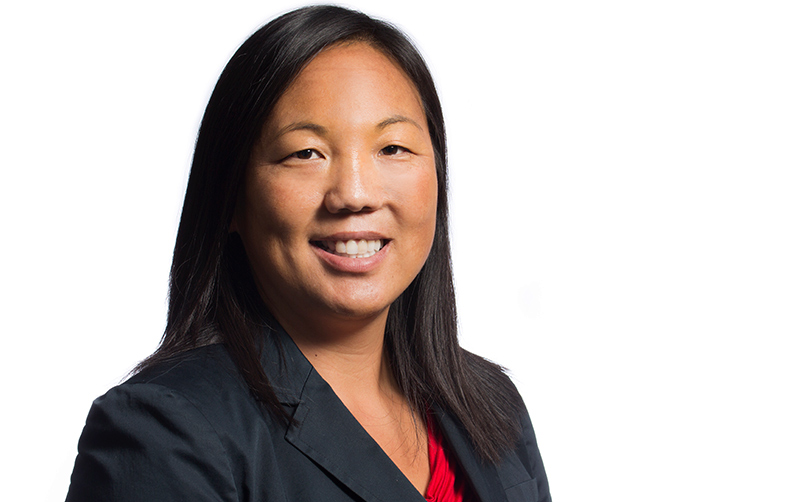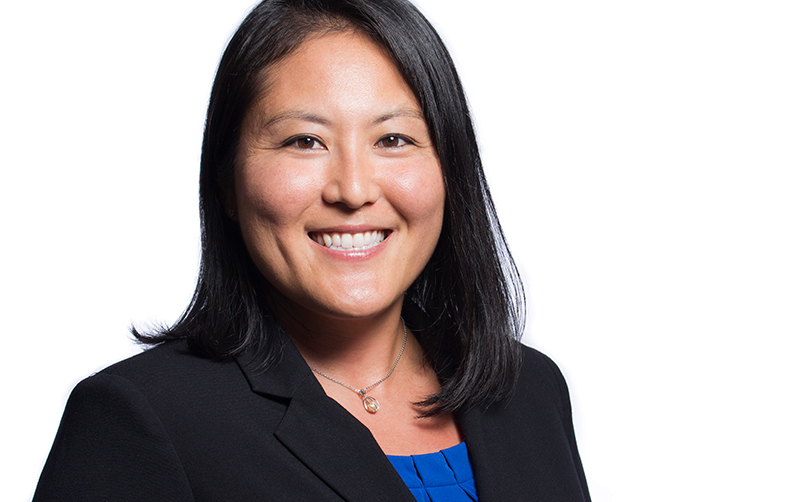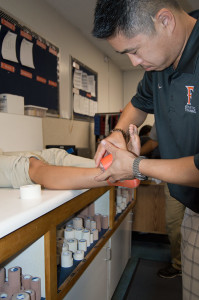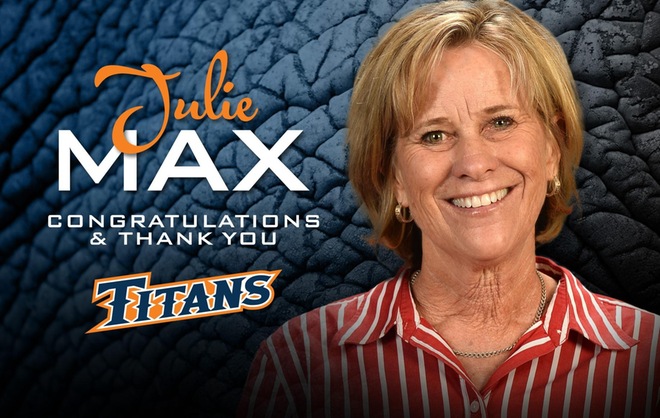
Article reposted from Cal State Fullerton Athletics
Author: Cal State Fullerton Athletics
Thirty-Seven years. For many, that may seem like an eternity, but when you love what you do, every day feels like you’ve won the national championship. While Cal State Fullerton has seen legendary coaches and athletes come and go, no one has made a bigger impact in the athletic training world than Julie Max.
“It’s amazing in all my years here my relationship with student-athletes hasn’t changed much,” says Max. “It’s really special. In fact, I was on the field when Demian Brown (current head coach for the Titans’ women’s soccer program) injured himself as a player. I helped him with his rehab and his recovery and now I’m saying the exact same things to his players that I said to him. The impact has really been a blessing. My entire job is a blessing. I truly don’t take this place or what I do for granted.”
For many, nearly four decades doing anything might seem like a hard thing to imagine, but for Max, doing anything else was unimaginable. From being a three-sport athlete at Fullerton College to then eventually transferring to Cal State Fullerton and graduating with her undergraduate degree in Kinesiology in 1979, she was destined to be a Titan for life.
“When I was a student, I really only had two loves professionally: sports and medicine,” Max says. “I quickly realized in school there was a great opportunity to blend those two. That’s when I knew this profession was truly a calling for me.”
Shortly after graduation in 1979, Max caught the break of a lifetime.
“I think it was literally less than a month after I graduated,” recalls Max. “I got a call from Cal State Fullerton asking if I wanted to work there full-time. I really don’t think I chose athletic training, the profession really chose me.”
From women’s basketball to women’s tennis, Max worked with them all, as she was named Head Athletic Trainer for Women’s Sports straight out of college.
“I had an annual salary of $8,000, but I was truly having the time of my life,” Max beams. “I got to travel with all of our teams and there was certainly never a dull moment.”
Through the years, Max has gone from a bright-eyed college graduate to a mentor and eventually earning one of the top honors the profession has to offer, as she was named the first female president of the National Athletics Trainers’ Association in 2000 and later permanently inducted into the National Athletic Trainers’ Hall of Fame.
“Julie means everything to me,” says current Cal State Fullerton Assistant Athletic Trainer Kyle Burnett. She is a mentor, a mother-figure and most of all a friend. Her passion, leadership and genuine love for the profession and people is contagious. Because of her I’m truly a better clinician and a better person.”
While she’s won numerous awards, gained tremendous experience through the years, her secret to success boils down to three simple things.
“I think it’s important to establish a philosophy,” Max says. “The most important things to me in my life are my integrity, my faith and that people know me as a woman of character. Those three things set the tone for how I lead, but those three things have never failed me. I take those three things in to everyday life with me.”
From coaches, players and her current staff, Max has left a legacy that will last a lifetime.
“She’s been a part of my life for a long time,” says head women’s soccer coach Damien Brown. “Whether it was me or our current student-athletes, Julie has always been there for the student-athletes. She has certainly left her legacy at Cal State Fullerton.”
When it comes to Julie Max, the theme is constant. She’s had an impact, not only on the profession, but the people in it. Whether it’s been rehabbing a bad knee or just simply lending an ear to a young professional looking for advice, Max has touched just about everyone at Cal State Fullerton.
It’s often said that it takes others to really solidify one’s legacy, so maybe that’s why current CSF Assistant Athletic Trainer Jamie Potter really sums it up best.
“Julie has been a mentor, a mother, a leader, a teacher, a legend, but most of all, an inspiration.”
Make sure to come out and celebrate Julie’s legendary career at her retirement party, Saturday from 3-6 pm at the George G. Golleher Alumni House on campus. To register please CLICK HERE and make a $37 donation to the Julie Max Scholarship Fund.
From all of us at Cal State Fullerton, Thank you Julie Max.
